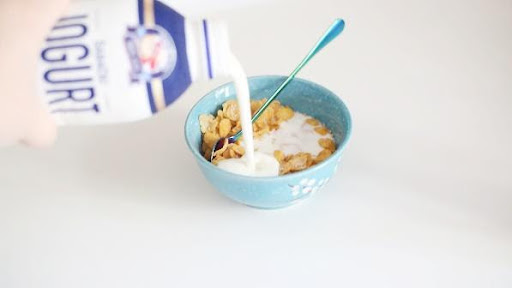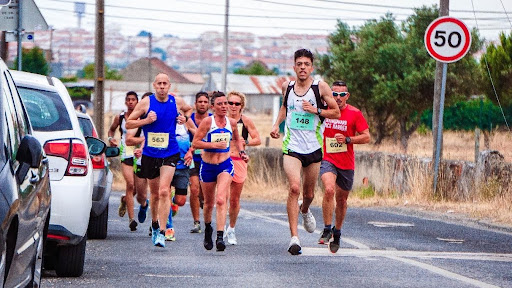Beginners Marathon Training Guide
Getting your diet correct is a very important part of running a marathon (or any running event for that matter). Both during the months of training and the race itself.
Sports Nutrition for your 1st Marathon
Training
It is vitally important that during the months of training for the marathon, you eat enough to fuel yourself for the running sessions and to replenish your depleted stores between sessions to allow adequate recovery so you are ready to go again the next session! You must also bear in mind that as you increase the distances you run and your weekly mileage increases you will need a little more food than normal to fuel this.

Photo Pasta dish
However unfortunately this should not come through eating more processed foods, chocolate and cake! Instead, increasing your protein intake is a good place to start as this will help your muscles repair following the many miles of running. On average, runners need about 50 to 75% more protein than non-runners, equating to around 1.2g to 1.4g per kg per day for an endurance athlete.
Additionally increasing your complex carbohydrate intake (oats, brown bread, rice etc.) is vital as carbohydrates are stored as glycogen and are your body’s main source of energy supply when running. You need to ensure your glycogen stores are high before training and then replenished afterwards. This can be achieved by always ensuring you eat something before your training runs (making sure to leave enough time before you start it to digest). Then make sure to refuel afterwards with a snack containing both proteins and carbohydrates within 45 minutes of finishing exercise.
Practicing Race Day Nutrition During Training
As the body can only store enough carbohydrates to fuel you for up to 2 hours of exercise, during the race itself you will need to keep these stores topped up. You should aim to take on between 30g – 60g of carbohydrate per hour during the race. As most people find it hard to digest food while running, it is vital to practice this during training as you can train your stomach to cope better with it. You can practise this on your long runs. During training you can experiment with different carbohydrate sources to see what suits you best. Ideas for these include jelly beans, bananas, energy gels, energy drinks or energy bars. Whatever works for you, make sure you practise with it and then ingest the same products on race day!
Taking on fluids is something you should also practice before race day as drinking while running can be a little tricky too! Generally the advice is to try and match fluid intake with sweat loss, in practice this means drinking little and often.
Taper
In the taper period going into a marathon your training mileage decreases to get you feeling fresh for the big day. As a result it is important you are mindful of not overeating during this time. You still need to maintain your carbohydrate intake, but try to match your overall calorie intake to your training volume to avoid unwanted weight gain in the final weeks before the race day -you do not want to go into the race feeling heavy and sluggish!
Lead Up to Race Day
In the past, carbohydrate ‘loading’ was advised in the week before a marathon. This was typically refraining from carbohydrates in the early part of the week to deplete your glycogen stores completely and then loading up on carbohydrates in the final days of the week which your body may store more effectively after being starved of them a few days earlier. However, this is often not practical, may not sit well with your stomach and is not really necessary as long as you eat well in the week preceding the race and slightly increase your overall carbohydrate ingestion.

Photo Breakfast bowl
Instead of carbo ‘loading’ just increase your diet’s ratio of carbohydrates in the final 3 to 4 days before a race to ingest more, making your carbohydrate portions with meals slightly larger than normal. Other examples include swapping normal snacks for complex carbohydrates such as, switching your fruit snack for a piece of brown toast or a bowl of cereal.
The day before the race make sure to eat well, but again not overeat the evening before as this will take some time to digest and can leave you feeling bloated and uncomfortable on race morning. It is often advisable to make lunch your biggest meal on the day before a race as this allows you to fuel up correctly but leave plenty of time for digestion. Also be mindful of how much fibre you eat the day before as this can further unsettle the stomach on race day.
Additionally make sure you drink frequently and often in the days before a race, carry a water bottle with you to help remind you. As you do not want to go into race day already dehydrated.
Race Day
On race day itself, be sure to eat a sufficient breakfast (one that you have practiced in training). Eat between 1 and 4 hours before the race start, again following whatever you have practiced during training.

Photo Road race
Hopefully you will have practised a nutrition strategy throughout training to follow during the race. Make sure you carry everything you need with you as the race aid stations may not provide what you have practised with or you may miss a station due to the excitement of the race! You should aim to ingest between 30g- 60g of carbohydrate per hour. This can be taken up in one go or little and often throughout the hour, whatever you have practised in training.
With regards to fluids this is dependent on the race day conditions as obviously you will need to drink more if it is hot or humid. The general advice is to match fluid intake with sweat loss, this means taking sips little and often as you do not want to over or under drink. It is also important to make sure you are hydrated before the race start (you can check this by looking at your urine colour which should be very light to indicate hydration!).
After the race, enjoy yourself – you have done all the hard work, and, unless you plan on running a marathon the next day, it is all about eating whatever you fancy as long as you refuel after the hard effort!
You also may wish to take a look at our basic Sports Nutrition page to give you more information on the subject.
